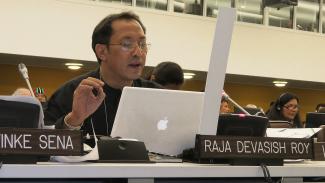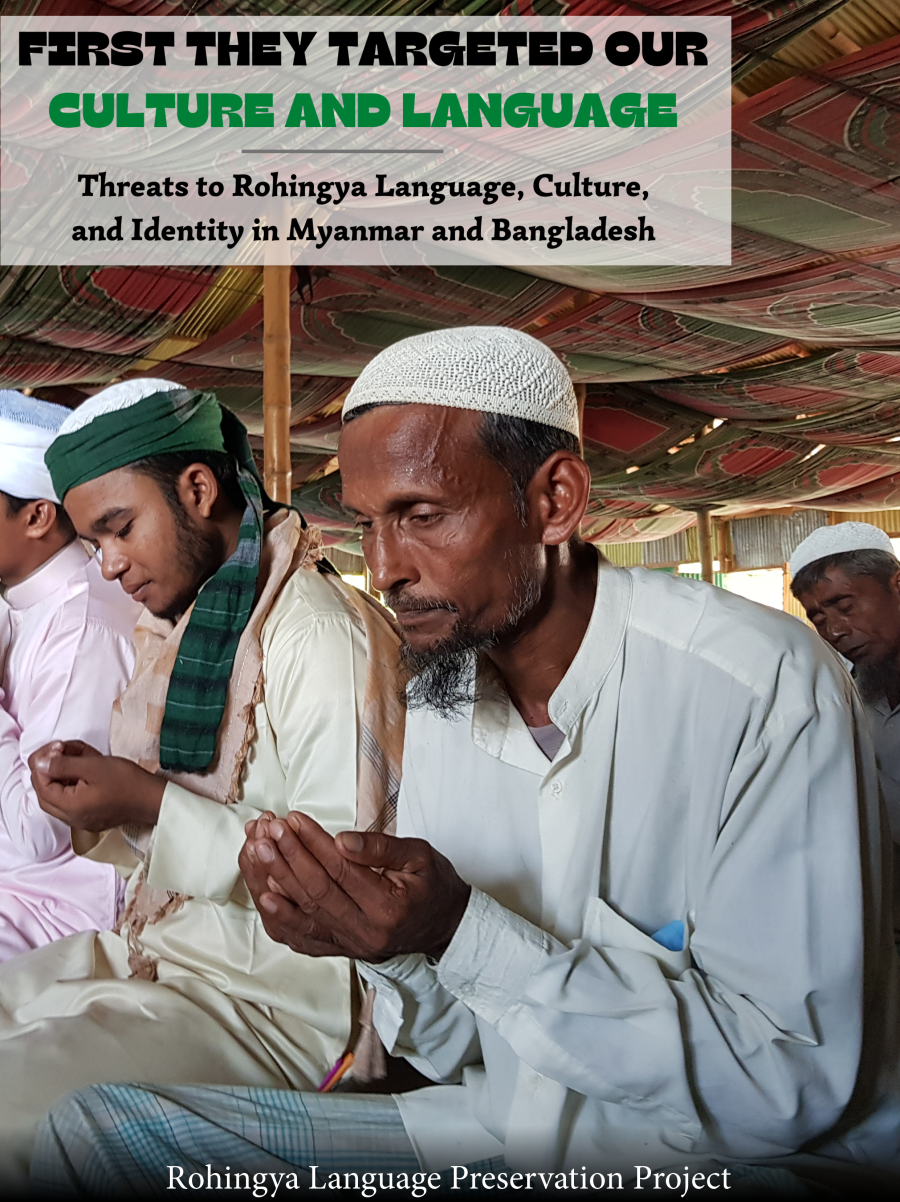
September 22, 2014 marked an important day for Indigenous communities everywhere. It was the first day of a two-day high level meeting of the General Assembly at the United Nations in New York City, doubling as the first World Conference on Indigenous Peoples. Throughout the day, over 1,000 Indigenous delegates gathered with government and UN officials, national human rights institutions, and various heads of state to discuss the best methods to approach and solve issues pressing Indigenous Peoples. The purpose of the meeting was to approve the conference’s Outcome Document, which would serve to renew and establish the international community’s commitment to addressing Indigenous rights. The following are excerpts of interviews with Indigenous delegates at the meeting.
Raja Devasish Roy (Chief of the Chakma Raja, Chittagong Hill Tracts Bangladesh), UN Permanent Forum on Indigenous Issues Member:
"I would like to look at the outcome document with regard to the actors. I think there are two distinct sets of actors apart from Indigenous Peoples: one are the States, at the national level, and the other is the UN system. In the case of the UN system, I think we can be reasonably optimistic of a little more meat to the skeleton, the skeleton being the UN Declaration. But with regard to the national government, it’s actually a very confusing and vague picture. This is the good thing: this is a political commitment. It’s a world conference. So even if you repeat the same language from the UN Declaration and put it here [in the outcome document] with a little more of an action-oriented tinge to it, Indigenous Peoples can use it as a tool for lobbying. With regard to action-orienting the activities on land, or health, or education, or women’s rights, in that case I think the situation varies. With some governments that have been very strong on Indigenous rights, like Bolivia, Mexico, Denmark, and so forth, I think this is good. But I think the weakness in this world conference is in mobilizing a lot more governments, particularly from Africa and Asia."
Listen to these interviews in their entirety and more at soundcloud.com/culturalsurvival.
To read the WCIP Outcome Document, visit: goo.gl/slPnlw.



